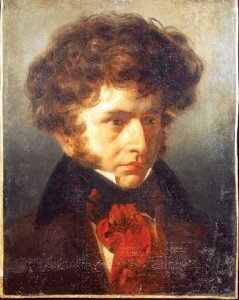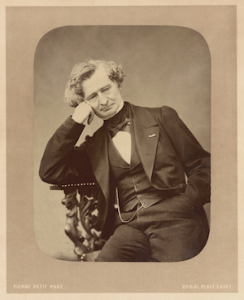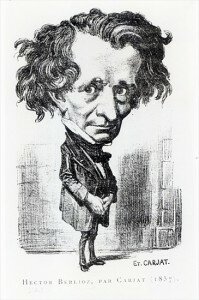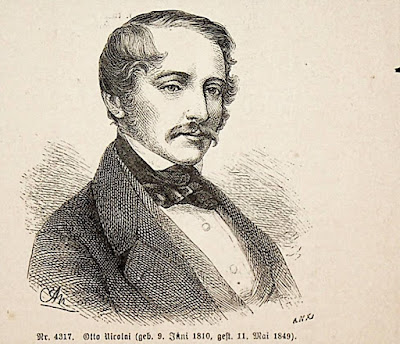It's all about the classical music composers and their works from the last 400 years and much more about music. Hier erfahren Sie alles über die klassischen Komponisten und ihre Meisterwerke der letzten vierhundert Jahre und vieles mehr über Klassische Musik.
Friday, April 19, 2013
George Gershwin - His Music and His Life
Wednesday, April 10, 2013
Classical Music
European music is largely distinguished from many other non-European and popular musical forms by its system of staff notation, in use since about the 16th century.[2] Western staff notation is used by composers to prescribe to the performer the pitch, speed, meter, individual rhythms and exact execution of a piece of music. This leaves less room for practices such as improvisation and ad libitum ornamentation, which are frequently heard in non-European art music and popular music.[3][4][5]
The term "classical music" did not appear until the early 19th century, in an attempt to "canonize" the period from Johann Sebastian Bach to Beethoven as a golden age.[6] The earliest reference to "classical music" recorded by the Oxford English Dictionary is from about 1836.[1][7]
Sunday, March 24, 2013
George Bizet - His Music and Life
Hector Berlioz - His Music and Life. Hector Berlioz: Enfant Terrible!

Hector Berlioz
 His chosen path plunged the budding composer into an archetypal struggle, not only for financial survival but also for the acceptance of his artistic ideas, a task to which he would tirelessly devote all his creative and intellectual energy. And as you might well imagine, he was widely misunderstood in his own lifetime. Claude Debussy, as he was working on his own opera, Pelleas et Melisande, wrote “Berlioz was never, properly speaking, a musician of the theater.” This seems a rather strange comment on a composer whose work is from beginning to end intensely dramatic in character. For his critics, Berlioz was more successful as a dramatist in his symphonies than in his stage works. The dramatic brilliance of his orchestral writing, according to the argument, detracted from the theatrical effectiveness of his operas. Berlioz completed only five operas, but he contemplated or sketched many more and had at least one operatic project in mind throughout his life.
His chosen path plunged the budding composer into an archetypal struggle, not only for financial survival but also for the acceptance of his artistic ideas, a task to which he would tirelessly devote all his creative and intellectual energy. And as you might well imagine, he was widely misunderstood in his own lifetime. Claude Debussy, as he was working on his own opera, Pelleas et Melisande, wrote “Berlioz was never, properly speaking, a musician of the theater.” This seems a rather strange comment on a composer whose work is from beginning to end intensely dramatic in character. For his critics, Berlioz was more successful as a dramatist in his symphonies than in his stage works. The dramatic brilliance of his orchestral writing, according to the argument, detracted from the theatrical effectiveness of his operas. Berlioz completed only five operas, but he contemplated or sketched many more and had at least one operatic project in mind throughout his life.  Berlioz’s skill as an orchestrator lays not in the novelty of the instruments themselves as much as it is found in his skill of using and combining them. Before Berlioz, the functions of orchestral instruments associated melody and harmony mainly in the string choir, with winds used for occasional reinforcement and soloistic color. For Berlioz, as he comprehensively described in his treatise on orchestration and instrumentation, the invention of a particular tone colors for individual passages was part of the normal process of composition. Harmony and correct voice-leading become secondary elements, and melody and the color of the orchestral sound makes almost exclusive claims upon our attention. We know that Berlioz responded to a request from Niccolo Paganini in his composition of Harold in Italy, but the combination of solo viola and orchestra in a symphony is nevertheless highly unusual! Paganini didn’t like it at all because it was not sufficiently virtuosic.
Berlioz’s skill as an orchestrator lays not in the novelty of the instruments themselves as much as it is found in his skill of using and combining them. Before Berlioz, the functions of orchestral instruments associated melody and harmony mainly in the string choir, with winds used for occasional reinforcement and soloistic color. For Berlioz, as he comprehensively described in his treatise on orchestration and instrumentation, the invention of a particular tone colors for individual passages was part of the normal process of composition. Harmony and correct voice-leading become secondary elements, and melody and the color of the orchestral sound makes almost exclusive claims upon our attention. We know that Berlioz responded to a request from Niccolo Paganini in his composition of Harold in Italy, but the combination of solo viola and orchestra in a symphony is nevertheless highly unusual! Paganini didn’t like it at all because it was not sufficiently virtuosic.
Berlioz sought employment in the theatre and the Conservatoire, but never in the Church. His pronouncements about religious music are the views of an unorthodox Christian, but he did set several sacred texts with a strong personal vision that discloses deeply religious roots. In his memoirs he writes about his fugue from the Messe solennelle, “Let people who have never heard anything like it, imagine what kind of devout expression arises when fifty voices, howling with fury in a lively tempo, repeat Amen four or five hundred times, or vocalize on the syllable “a,” so as to sound like raucous laughter. I defy anyone with the slightest musical feeling not to interpret such a chorus as an army of incarnate devils, making fun of the sacrament, rather than a gathering of the faithful praising god.” In essence, his religious music is primarily theatrical and orchestral, as his aim seems to have been a display of unity of subject matter and artistic purpose, rather then one of musical means.
Tuesday, March 19, 2013
Alban Berg - His Music and Life
Wednesday, March 6, 2013
Franz von Suppe - His Music and Life
Daniel Francois Esprit Auber - His Music and Life
Thursday, February 28, 2013
Monday, February 18, 2013
Richard Strauss - His Music and Life
“I may not be a first-rate composer, but I am a first-class second-rate composer.” Richard Strauss, composer
Born on June 11, 1864 in Munich, the German Richard Strauss passed away in Garmisch on September 8, 1949. His mother came from the Munich brewery family Pschorr.










